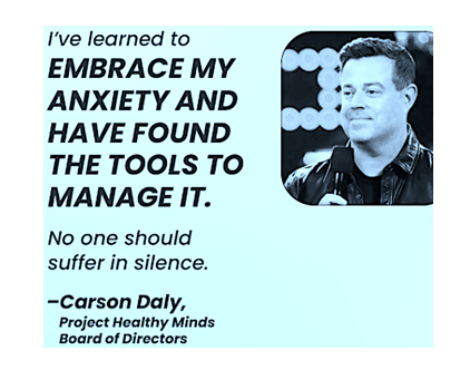We often associate mental health exclusively with our minds, when, in actuality, it has the propensity to impact our entire bodies.
That’s because our minds and our bodies are inextricably linked. When our mental health is suffering, our physical health might be suffering, too. So, if you’re experiencing unexplained pain, it could be your body’s way of reacting to mental unease—and notifying you that there’s a problem.
Mental health challenges can manifest in a number of physical symptoms—ranging from harmless aches to more serious ailments that develop, and worsen, over an extended period of time. Complaints of fatigue, insomnia, muscle aches, sluggishness, headaches and stomach pain are all common amongst those who suffer from anxiety and depression.
In short, mental health struggles can, indeed, make you feel physically ill. It’s important to know how to spot the signs, and when it’s time to get the help you need to feel well again.
Psychosomatic, explained
The technical term to describe the link between mental and physical health is “psychosomatic.” Psychosomatic is a psychological condition, in which one experiences physical symptoms without any viable medical explanation.
Although psychosomatic symptoms are instigated by our minds, they can lead to serious issues if left untreated. With psychosomatic disorder, the notion that it’s “all in your head” is far from the truth. Physical symptoms still feel very real, and are not at all imagined.
How mental health can spur physical problems
The science behind the link between our mental health and our physical health is complicated. It can, however, be boiled down to our stress hormones: adrenaline and cortisol. In times of stress, our bodies become overwhelmed by these hormones, which can spur various physical changes, such as spiked blood pressure, increased heart rate, difficulty breathing, suppressed or overactive appetites, among other symptoms. Above all, mounting stress can impact our immune systems, which plays a critical role in staving off illnesses.
Our body’s innate reaction to our stress hormones is technically a good thing—it means we are preparing to protect ourselves against a potential threat. That being said, if our minds are in a constant state of peril, our stress hormones can become overactive, which, in turn, can negatively impact our physical health.
Persistently high stress levels will prod our cortisol and adrenaline levels to remain consistently high, making it difficult for our bodies to reach a “resting” state, in which we are physically (and mentally) at peace. This relentless state of physical stress can wreak havoc on our organs, and can also impact pain tolerance and other critical bodily functions.
Common physical symptoms of mental health issues
Of course, different mental health challenges can spur different symptoms, but there are common physical signs to look out for. They include:
Body aches
Fatigue
Muscle tension and soreness
Stomach and digestive problems
Back pain
Sleep challenges
High stress levels or trauma can also trigger autoimmune disorders, such as psoriasis and arthritis.
In any case, it can be challenging to distinguish between physical ailments caused by mental health issues, and those that are inflicted by something else. That’s why, if symptoms are persistent and becoming increasingly serious, it’s important to speak to a healthcare professional. They can run tests, such as blood work, to pinpoint the culprit behind the problem.
It can be helpful to do mental health testing, too. For instance, taking YMI’s science-driven survey will allow you to gain a clearer understanding of your own mental health history and current needs. The better you know yourself, the better you can diagnose your symptoms—and combat them efficiently and effectively.
Either way, determining the root cause of physical symptoms will ensure you are getting the treatment you need—whether it’s physical or mental support, or both.
In sum, listen to your body, and don’t ignore symptoms.
Coping with physical symptoms of mental illness
If you do determine that your physical symptoms are being caused by mental illness, it’s important to tend to your mental health promptly, to avoid any bodily problems getting worse.
In addition to seeking counseling, there are things you can do to mitigate symptoms, and use your stress hormones for something more productive, such as exercising. Exerting cortisol and adrenaline while working out will help your body channel negative energy elsewhere, thereby allowing you to destress and reach a relaxed physical state.
Remember, just as our mental health impacts our physical health, our physical health also impacts our mental state. Staying in strong shape can have a profoundly positive impact on mental health. One of the best things you can do for your mind is to stay active.
Practicing breathing exercises and engaging in calming activities—such as yoga, meditation or crafts—can also make a big impact on lessening the physical symptoms of mental health challenges. Setting aside time each day to exert energy and practice mindfulness will have a palpable impact on your mental and physical wellbeing.
There’s no one-size-fits-all solution to mental health struggles, and unfortunately, it’s not always a simple recovery process. Still, the journey to improving your mental and physical health is exceptionally rewarding—and very worthwhile. Start today.



